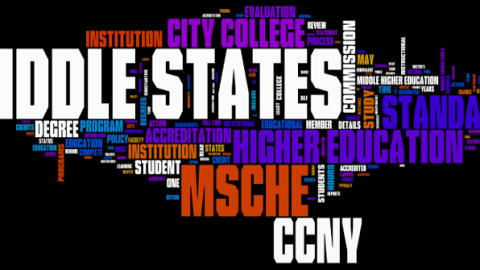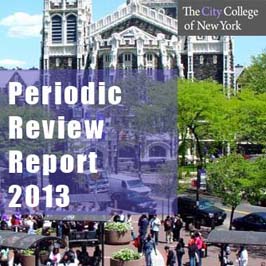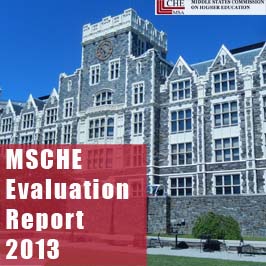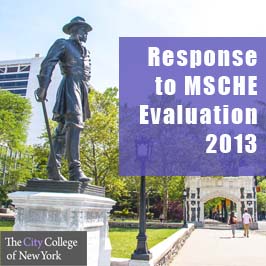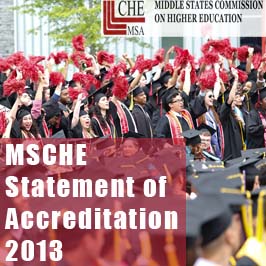Middle States
The City College of New York (CCNY) is accredited by the Middle States Commission on Higher Education (MSCHE). At ten-year intervals, the institution prepares a detailed self-study to demonstrate compliance with the Commission’s Standards for Accreditation and Requirements of Affiliation, and to develop recommendations for improvement. The next self-study will be submitted to MSCHE in 2018.
This site contains information about CCNY's current accreditation status and institutional progress toward re-accreditation. CCNY was mostly recently re-accredited in 2013 following the submission of its Periodic Review Report (PRR). Our last self-study and accreditation visit was completed in 2008.
Middle States Commission on Higher Education
The Middle States Commission on Higher Education (MSCHE) was established in 1919. It is a voluntary, non-governmental, peer-based membership organization dedicated to educational excellence and improvement through peer evaluation and accreditation. MSCHE reviews institutions periodically through either on-site evaluation or other reports. Accreditation is continued only as a result of periodic reviews and evaluations through assessments of institutional achievements.
The Middle States Commission on Higher Education (MSCHE) aspires to be the preeminent resource for institutions of higher education striving to achieve excellence in fulfilling their missions. It also intends, through voluntary assessment and adherence to high standards for student learning outcomes and operational behavior, to assure higher education's publics that its accredited institutions are fulfilling their stated purposes and addressing the publics' expectations.
The MSCHE is guided by these Core Values:
Voluntary membership
Self-regulation and peer-review
A continuous and seamless relationship with member institutions to promote continuous self-evaluation and institutional improvement
Respect for the unique mission of each institution and evaluation within that context
Student learning and effective teaching
Transparency about the accreditation processes and the status held by each member institution
Commitment to the principles of cooperation, flexibility, and openness
Responsiveness to the needs of the higher education community and societal changes
Consideration of societal and institutional needs through attention to and emphasis on both improvement and compliance
Responsiveness to a diverse, dynamic, global higher education community that is continually evolving.
Last Updated: 12/20/2018 11:58
